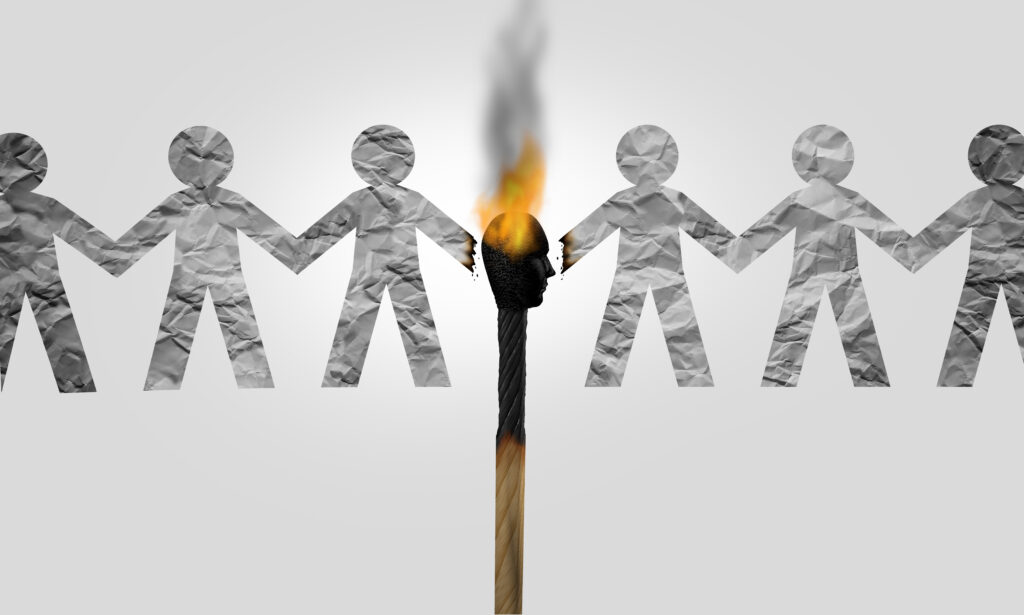The 2023 Edelman Trust Barometer tells us more about the decline of trust globally. This year, they track the rise in polarization, too.
It’s that time of year again. Edelman has released the latest “Edelman Trust Barometer” study where they continue to monitor the decline of trust in America and around the world.
With one glaring exception, it was more of the same this year: Trust is down across the board . . . Poor people are less trusting than wealthy people . . . Business is the most trusted industry (over government, NGOs, and media) . . . Business allegedly bears some responsibility to “fix” things.
For one positive note, the nonprofit sector (NGOs) saw only a 1 percent decrease in trust, which is a leveling out from last year’s five percentage-point drop.
The glaring exception, however, was the new section on polarization.
It was not surprising to read about how deep polarization is globally, or to find that the United States is one of six countries considered “severely polarized” (keeping company with Argentina, Colombia, South Africa, Spain, and Sweden).
It also was not surprising that “distrust in government” and “lack of shared identity” were key drivers of the sense of severe polarization. And it was also not unsurprising that, domestically, more Republicans (50%) than Democrats (33%) think America is polarized.
The surprising part was the outcome of that polarization on the individual level.
POLARIZATION AND A REFUSAL TO HELP
Respondents were asked how they would interact with those who “strongly disagreed” with them or their point of view—and the responses are troubling. Only 20% of respondents are willing to live in the same neighborhood as someone with whom they disagree. 20% are willing to work with people who disagree with them.
Troublingly, just 30% of respondents say they would help someone with whom they disagree if they were in need.
We all know our country is divided. Many of us feel that polarization is unusually pronounced right now. But it’s another thing altogether that this division is turning into an unwillingness to help those in need.
To be sure, the vagueness of the question complicates the answer: what do we mean by help? In what way are they in need? What do we disagree about? And, like the anonymity of a tweet, the theoretical nature of a survey doesn’t accurately portray how people would act in reality.
Nevertheless, it is still troubling that 70% of people even say that they would be unwilling to help someone in need if they disagreed with their “point of view.” The Parable of the Good Samaritan is taking on a whole new relevance today.
Edelman aptly summarizes this phenomenon: “Ideology becomes identity.” This is a frightening thing for civil society and for human flourishing.
LOCALIZED TRUST
Richard Edelman, in his article about the report, buries the one good point: “Trust has become more local.”
Every year, Edelman loves to celebrate the fact that business is the most trusted industry—but Mr. Edelman, CEO of Edelman, here subtly (if unwittingly) identifies why business is the most trusted industry. It’s not because they trust the industry, but because they have a specific and local thing in mind: their employer.
“Government” and “NGOs” and “Media” are faceless, nameless, behemoths. Those of us in the nonprofit sector might think of this or that organization, but for most respondents, “NGOs” is a morass, just like Government and Media. “Business,” on the other hand, has a concrete referent: a set of colleagues, a boss, a specific institution.
This insight takes some of the sizzle out of the entire report, actually. It’s an unfortunate thing, to be sure, that trust in nonprofits is declining, but the high trust in business is hardly a vote of confidence for modern financial capitalism. It’s simply a reminder that we are persons, individuated by flesh and blood and drawn to localized connection.
Of the four options for ranking trust, one (Business) is concrete and specific, and that one comes out ahead. That’s good news.
THE WAY FORWARD
The authors of the report seem to have missed Mr. Edelman’s key insight, or at least the significance of that insight. They tell us, yet again, that Business will lead us out of this mess. The “most trusted” industry, it obviously falls to Business to restore trust and reduce polarization.
Somehow, CEOs will help businesses avoid being partisan while doing more to help society. Expanding their commitment to ESG and DEI will somehow reduce polarization. (In light of the rampant DEI initiatives at businesses around the world, it’s actually no wonder that 80% of respondents don’t want to work with people they disagree with.)
Color me skeptical. Edelman released the report at the World Economic Forum in Davos earlier this month. This gathering of business leaders is hardly fertile ground for sowing “trust.”
And so we can see an extraordinary, if unsurprising, lack of self-awareness at the heart of the report. The wealthy, they tell us, are more trusting than the poor, and so at a gathering of the world’s wealthiest individuals, they tell us that wealthy CEOs are our last best hope for restoring trust. How uncanny!
If Mr. Edelman’s insight that trust is local is correct, then businesses probably do have an important role to play in restoring trust. But not as some faceless, unindividuated behemoth industry. It’s not “Business” that will reduce polarization, but businesses that can help us chart a path forward.
And businesses can play a role in restoring trust not by positioning themselves as social saviors, but by telling the truth and caring for their employees. Instead of false promises about how they will systemically transform society, instead of pitting colleagues against each other with DEI initiatives, businesses should strive to be the best at what they do, to care for their employees while they do that, and to tell the truth, internally and externally.
A bit of honesty from businesses along with some more humble pretensions about their role in the arc of history might actually do some work to restoring trust.






